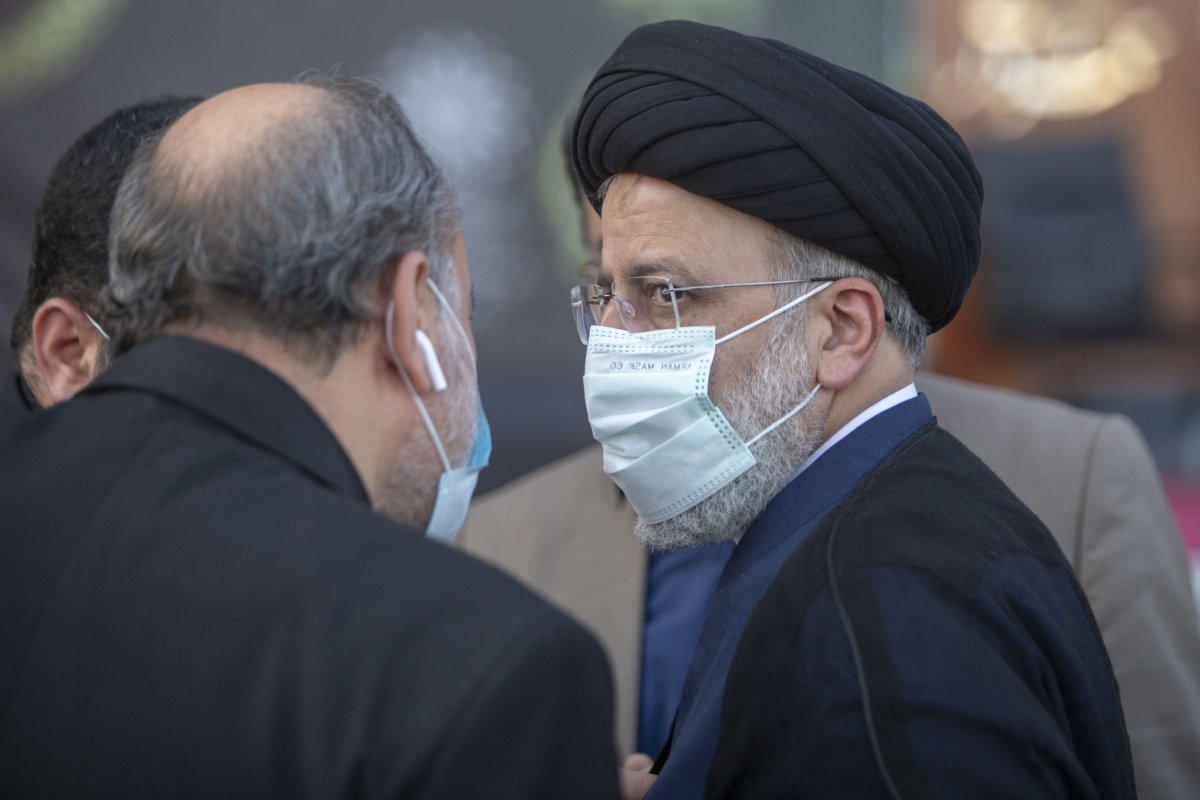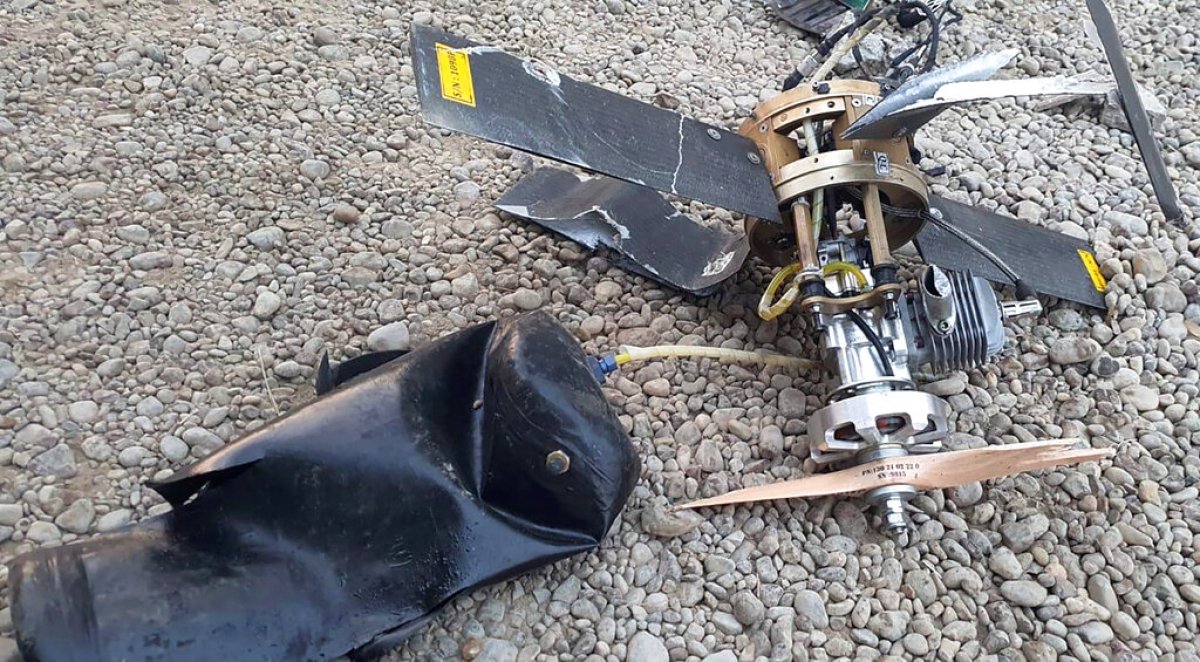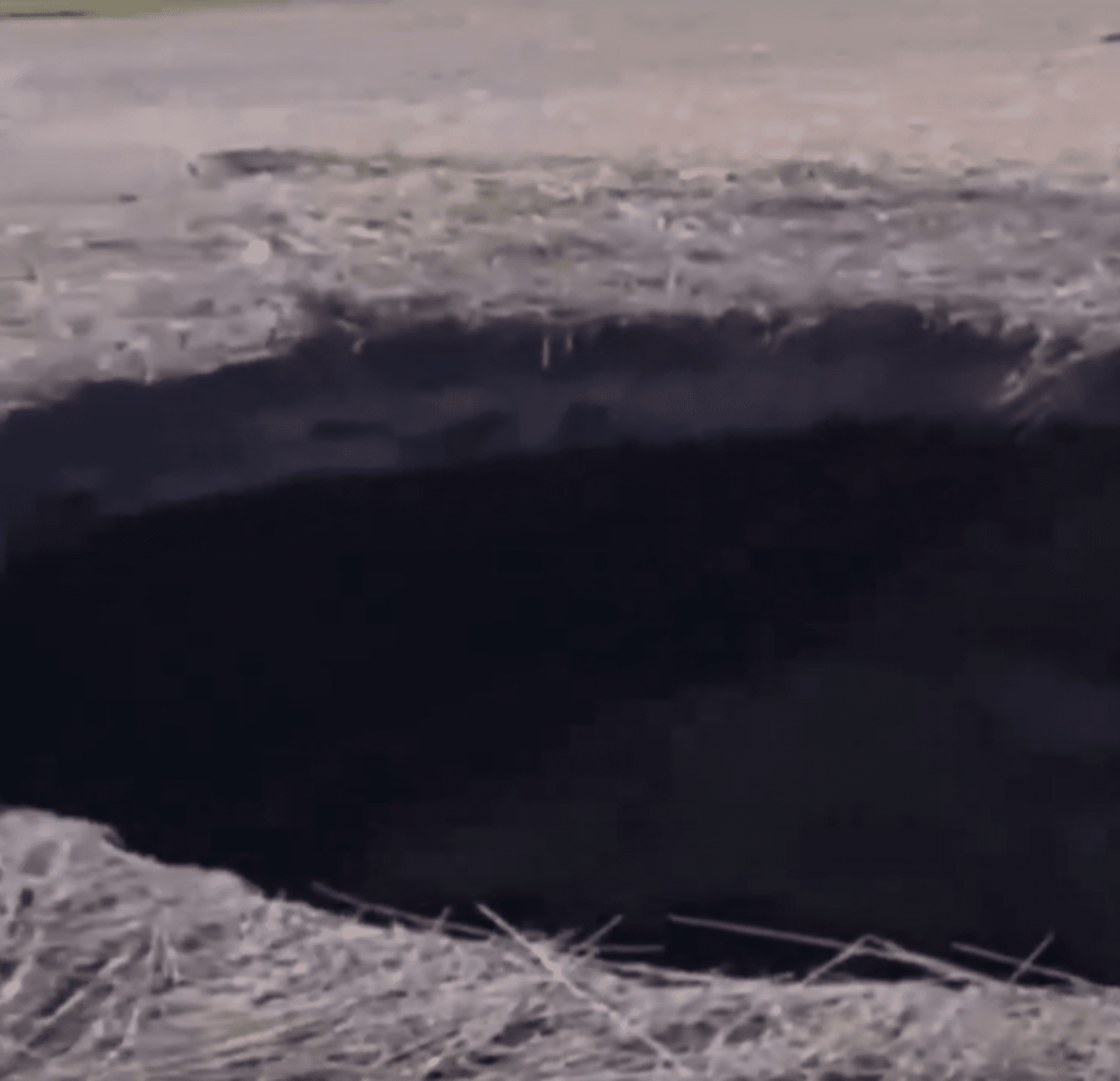The president of Iran called for former President Donald Trump to be "prosecuted and killed" on Monday over the U.S. drone strike in Iraq that killed a top Iranian general in 2020.
Two years ago general Qassem Soleimani was killed from a U.S. drone strike at the Baghdad International Airport and President Ebrahim Raisi said he wants Trump to be held responsible for the attack.
"If not, I'm telling all American leaders, don't doubt that the hand of revenge will come out of the sleeves of ummah," Raisi said.
A memorial service for the second anniversary of Solemimani's death was attended by thousands of people gathering at mosques in Iran and countries across the Middle East, The Daily Mail reported.
However, the day of grieving was filled with violence from a string of attacks. Two "suicide drones", one of which had the words "Soleimani's revenge" painted in Arabic, were shot down by troops at the Baghdad International Airport.
So far, no one has claimed responsibility for the drone attack. No damage or injuries have been reported.
Additionally, an Israeli newspaper, the Jerusalem Post, had their website hacked with their homepage replaced by a picture of a missile coming out of a closed fist wearing a ring, associated with Soleimani's death.
The last reported attack comes from the Emirati ship being overtaken by Yemen's Houthi rebels in the Red Sea.

The taking of the Emirati ship Rwabee marks the latest assault in the Red Sea, a crucial route for international trade and energy shipments. The Iranian-backed Houthis acknowledged the seizure off the coast of Hodeida, a long-contested prize of the grinding war in Yemen between the rebels and a Saudi-led coalition that includes the United Arab Emirates.
First word of the Rwabee's seizure came from the British military's United Kingdom Maritime Trade Operations, which only said an attack targeted an unnamed vessel around midnight. The coordinates it offered corresponded to the Rwabee, which has rarely given its location via tracking data in recent months unlike most commercial traffic in the region, according to the website MarineTraffic.com.
A statement from the Saudi-led coalition, carried by state media in the kingdom, acknowledged the attack hours later, saying the Houthis had committed an act of "armed piracy" involving the vessel. The coalition asserted the ship carried medical equipment from a dismantled Saudi field hospital in the distant island of Socotra, without offering evidence.
"The militia must promptly release the ship or the coalition forces will undertake all necessary measures and procedures to handle this violation, including the use of force if necessary," Brigadier General Turki al-Malki said in a statement.
The Houthis later aired footage from the Rwabee on their Al-Masirah satellite news channel. It showed military-style inflatable rafts, trucks and other vehicles on the vessel, a landing craft that lowers a ramp to allow equipment to roll on and off. One brief clip showed what appeared to be a collection of rifles inside a container.
"It is completely obvious today that the information that this ship was carrying a civilian field hospital is not correct," said Yahia Sarei, a Houthi military spokesman. "This is clearly military equipment."
Saudi state television alleged the Houthis transferred the weapons onto the ship.
An employee at the vessel's owners, Abu Dhabi-based Liwa Marine Services, told The Associated Press in a telephone call that the Rwabee appeared to have been the target but said they had no other information. The employee declined to comment further and hung up before giving their name.
A similar assault happened in 2016 involving the Emirati vessel SWIFT-1, which had been sailing back and forth in the Red Sea between an Emirati troop base in Eritrea and Yemen. The vessel came under attack by Houthi forces in 2016. The Emirati government asserted the SWIFT-1 had carried humanitarian aid; U.N. experts later said of the claim that they were "unconvinced of its veracity."
No group immediately claimed responsibility for the hacking of the Jerusalem Post's website.
The image also depicted an exploding target used during a recent Iranian military drill that was designed to look like the Shimon Peres Negev Nuclear Research Center near the Israeli city of Dimona. The facility is home to decades-old underground laboratories that reprocess spent rods from a nuclear reactor to obtain weapons-grade plutonium for Israel's nuclear bomb program.
Under its policy of nuclear ambiguity, Israel neither confirms nor denies having atomic weapons.
In a tweet, the Post acknowledged being the target of hackers.
"We are aware of the apparent hacking of our website, alongside a direct threat to Israel," the English-language newspaper wrote.
The newspaper later restored its site. It noted Iran-supporting hackers previously targeted its homepage in 2020.
The hack came after Israel's former military intelligence chief in late December publicly acknowledged his country was involved in Soleimani's killing. The U.S. drone killed the general as he was leaving Baghdad's international airport.
As the head of the elite Quds, or Jerusalem, Force of the Revolutionary Guard, Soleimani led all of its expeditionary forces and frequently shuttled among Iraq, Lebanon and Syria. Quds Force members have deployed in Syria to support President Bashar Assad in that country's long war, as well as in Iraq in the wake of the 2003 U.S.-led invasion that toppled dictator Saddam Hussein, a longtime foe of Tehran.
Soleimani rose to prominence by advising forces fighting the Islamic State group in Iraq and in Syria on behalf of the embattled Assad.
U.S. officials say the Guard under Soleimani taught Iraqi militants how to manufacture and use especially deadly roadside bombs against U.S. troops. Iran has denied that.
Monday's events highlight tensions in the Middle East, which has been roiled by Trump's 2018 decision to unilaterally withdraw America from a deal aimed at limiting Tehran's nuclear program. As talks continue in Vienna to try to resuscitate the accord, Iran remains able to apply pressure from outside of the negotiations even as it is squeezed by sanctions and a shadow war with Israel.
The Associated Press contributed to this report.

Uncommon Knowledge
Newsweek is committed to challenging conventional wisdom and finding connections in the search for common ground.
Newsweek is committed to challenging conventional wisdom and finding connections in the search for common ground.
About the writer
To read how Newsweek uses AI as a newsroom tool, Click here.








